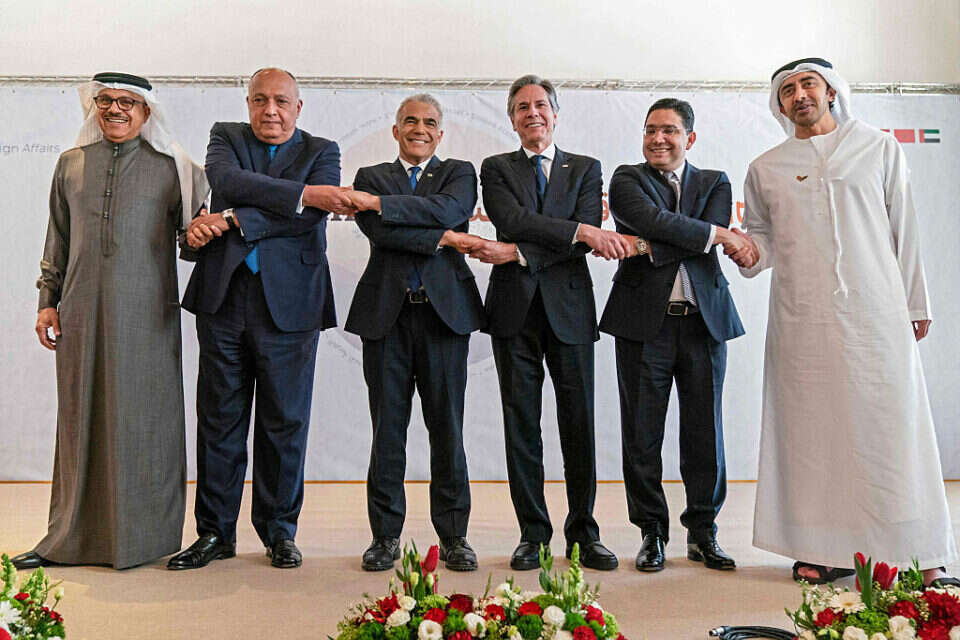The meeting of the foreign ministers of the United States, Egypt, the Emirates, Morocco and Bahrain in Israel, along with the Prime Minister, the President of Egypt and the successor to the Emirate and the open security and intelligence ties between Israel and a wide range of Arab countries, reflect revolutionary strategic change.
In the broad historical context, this is about institutionalizing Israel's status as the most important regional power in the Middle East.
In the immediate and focused context, they are shaping an Israeli-Arab coalition in the face of the loss of American policy in the region and the complete surrender of the United States to Iran. A replacement for American backing. They must maneuver between thwarting the damage of Biden's conciliation in the short term and cooperating with the United States, towards the point where Washington will have to acknowledge the inevitable failure of this conciliation.
The resemblance to Eisenhower's folly in 1956 cries out from every move.
Even then, the American president's failure to understand the image of an anti-American Middle Eastern radical (Nasser) allowed him to impose hegemony on the entire region and betrayed his closest allies (Britain and France).
When his policies led, as expected, to a dramatic strengthening of the USSR status and the collapse of the West's status in the region (the fall of the regime in Iraq and the threat to pro-American elements in Jordan and Lebanon), not even the amendment ("Eisenhower Doctrine") succeeded in changing the trend. And the determined struggle led by Nixon and Kissinger rescued the area, 20 years later, from its damage.
What is different this time is the strength and determination of the regional allies.
Israel is strong enough to lead the struggle, despite American surrender to the Revolutionary Guards;
Its Arab allies are determined enough to bring out to the Arab public their close security ties with Israel and to recognize its leading regional status.
The Allies are all under the same paradox: they are in fact struggling with American policy, out of a keen awareness of their dependence on the United States, waiting for Washington to recognize that its regional policy has failed.
The hope that American policy will be recognized as a dead end rests on two processes that are already emerging: the level of Iranian aggression and the willingness of members of the Arab-Israeli coalition to escalate their struggle.
Iran's contempt for the United States is reflected in its attack on American forces in its response to an Israeli attack and its demand to remove the Revolutionary Guards from the list of terrorists. The Arabs fear that their regimes will collapse and that the Americans will be content with murmurs of solidarity.
Israel has made clear in its policy statements and military actions that it is not bound by the emerging agreement.
The Gulf states signaled the connection between their abandonment of Iran and their willingness to increase oil production in order to moderate its price.
Arab countries convene in Israel and declare military and intelligence cooperation with it.
Their sisters are examining the reactions of the Arab public, hoping to join.
Complementary needs and skills: The Arabs need the unique Israeli capabilities in the field of intelligence, air defense and ballistics;
Israel needs to fund its intensification and bases for action near Iran.
The war in Ukraine has devoured the cards in the global arena and could lead to connections between the oppressive regime and China or Russia, which will have a profound effect on the trend of events in the region.
But it seems that the Arab taboo on open and deep connection between Israel and its neighbors has been broken once and for all.
This essay completes the process of turning Israel into a regional power on a full scale: not only in the military, economic, scientific and technological dimensions, but also in the maneuverability and leverage of ties.
While American policy toward Iran is irresponsible, failed, and dangerous, it has also benefited at least pushing the Arabs into Israel's arms.
Were we wrong?
Fixed!
If you found an error in the article, we'll be happy for you to share it with us

